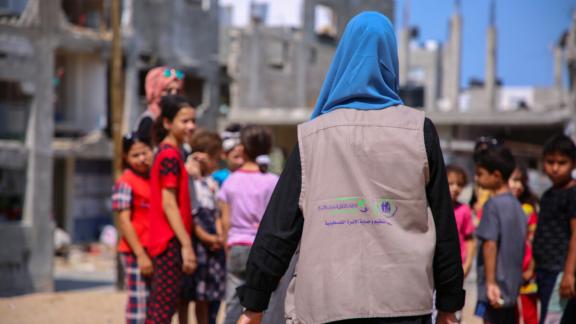Contraception in emergencies

Contraception is lifesaving and a priority health service in emergencies. The Minimum Initial Services Package (MISP) for sexual and reproductive health (SRH), the global standard for SRH response in acute emergencies, includes prevention of unintended pregnancies as one of six objectives. Contraception should be made available along with other essential SRH services at the outset of every emergency response, and should be scaled up further after the acute stage of an emergency.
Safe abortion care in emergencies

Women in humanitarian settings face an increased risk of unintended pregnancies and are at a greater risk of sexual violence, but the collapse of health systems means reduced access to both contraceptives and safe abortion and post abortion care. Safe abortion care is included as one of the crucial services required to respond to reproductive health needs at the onset of humanitarian crises.
Sexual and gender-based violence in emergencies

Sexual and gender-based violence (SGBV), particularly against women and girls, is pervasive and exacerbated in every humanitarian emergency. Yet protection from SGBV is not treated as a priority from the earliest stages of a crisis. Girls and women who experience SGBV need urgent access to confidential and safe sexual and reproductive health services and referral pathways.
Why is sexual and reproductive health vital in a crisis?

Where We Respond
Crisis in the Middle East
IPPF's Member Associations are delivering life-saving sexual and reproductive healthcare to those affected by the violence in Gaza, the West Bank and southern Lebanon. We are working to protect health workers, sustain essential services, and reach communities facing displacement and loss. Despite the destruction of our clinic in Gaza and ongoing attacks on healthcare, our commitment holds firm.
For decades, we have provided emergency sexual and reproductive health services in conflict settings across the region. As reproductive violence escalates and threats to clinics, staff and clients grow, we are scaling up efforts to reach women, girls and marginalised communities with vital care. We call for the protection of all civilians and unhindered access to healthcare, in line with international humanitarian law, and join global calls for an immediate ceasefire and a just, lasting peace.
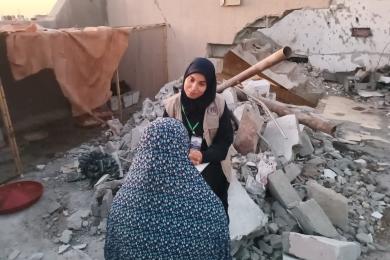
Yemen Civil War
Yemen remains one of the world’s most severe and protracted humanitarian crises, fuelled by years of conflict, economic collapse, climate shocks and the breakdown of public services. In 2025, an estimated 19.5 million people require humanitarian assistance and protection - an increase of 1.3 million from the previous year. The situation is especially critical for the most marginalised, including women and girls.
Food insecurity continues to rise, displacement is ongoing, and protection risks remain widespread. For many women and girls, the crisis is intensified by entrenched gender inequality that restricts mobility, access to income, and essential healthcare.
In response, the Yemeni Association for Reproductive Health (YARH) is providing life-saving sexual and reproductive health services, including round-the-clock emergency obstetric care in Sana’a and Aden. These services support internally displaced people and vulnerable communities with little to no access to healthcare.
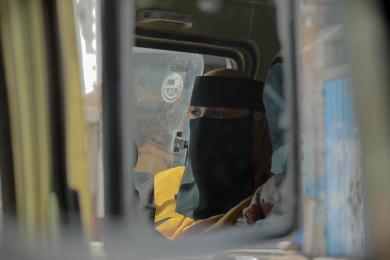
Sudan War
Sudan is facing one of the world’s largest and fastest-growing humanitarian crises. As of 2025, more than 30 million people need humanitarian support, with sexual and reproductive health (SRH) needs becoming increasingly urgent. Widespread conflict, mass displacement, and the collapse of essential services have left millions without access to maternal healthcare, contraception, and care for survivors of sexual and gender-based violence. Less than 25 per cent of health facilities remain functional in the hardest-hit areas. The number of people at risk of gender-based violence has tripled since April 2023, with over 12 million women, girls, men, and boys now in need of protection.
Since the earliest days of the conflict, the Sudan Family Planning Association (SFPA) has been at the forefront of the SRH response. Working across the country through a network of mobile and static clinics, telemedicine platforms, and call centres, SFPA is providing life-saving care to displaced communities, including antenatal services, contraception, safe delivery support and SGBV response.
Read more about the escalating SGBV situation in Sudan here and here.
Read more about the rise of HIV+ cases in Sudan here.
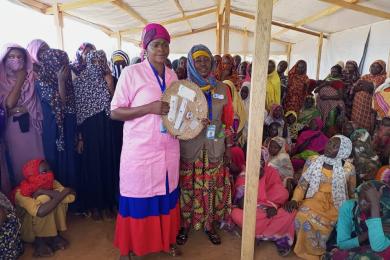
Ukraine War
More than three years since the full-scale invasion of Ukraine, the conflict continues with no end in sight, and humanitarian needs remain severe. In 2025, 12.7 million people across Ukraine require assistance, including 2.4 million in need of protection from sexual and gender-based violence. Attacks on infrastructure have damaged essential services, and power cuts continue to disrupt hospitals and clinics.
Limited prenatal care and the stress of war have led to more pregnancy complications, premature births and maternal health risks. Reports of sexual and gender-based violence are rising, yet access to trained professionals, post-rape care and forensic services remains limited.
IPPF’s response spans seven countries and includes 17 local partners, making it one of the largest SRHR and SGBV-focused programmes in the region. In Ukraine, IPPF works with its Member Association, Woman Health and Family Planning (WHFP), to improve the infrastructure and quality of essential sexual and reproductive healthcare, ensuring services continue in the face of ongoing challenges.
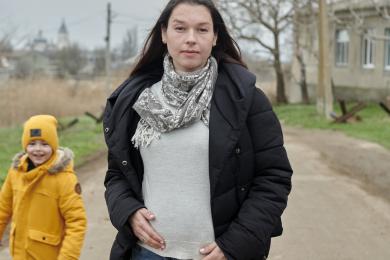
The Climate Crisis
The climate crisis is one of the key challenges of this time. As a major healthcare provider and advocate of sexual and reproductive health and rights, IPPF is committed to supporting communities to adapt to the effects of the climate crisis. The impacts on SRHR can include reduced or unavailable SRHR services in areas affected by disasters, changes in women’s family planning decisions due to uncertain futures, and increased incidence of sexual and gender based violence.
Read more about how the climate crisis is affecting women in the South America here.








